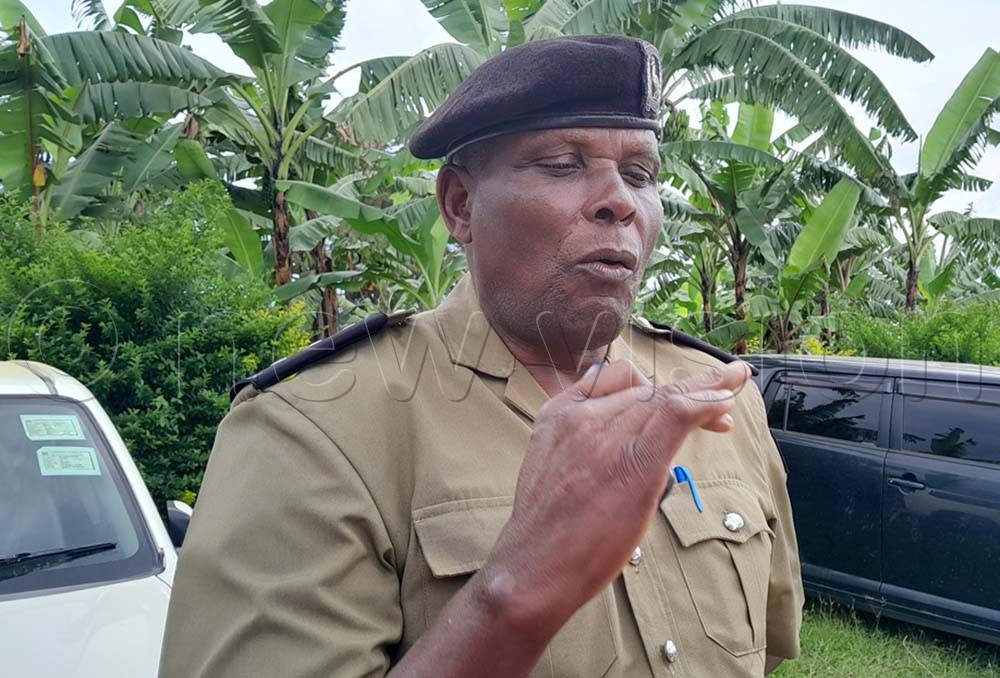Bushenyi leaders demand tougher guidelines for community service punishment
Joash Tamale, a team leader at Foundation for Human Rights Initiative (FHRI) Bushenyi office, said the project, which started in 2022, aims to deepen criminal justice reform and promote alternative punishments.
The meeting was attended by Police officers, district community development officers, headteachers of some schools, and health centre in-charges. (Credit: Bruno Mugizi)
Kizinda Police Station officer-in-charge ASP Joram Tumwesigire said offenders also fear doing community service in their localities. (Credit: Bruno Mugizi)
BUSHENYI - Leaders of government institutions in Greater Bushenyi have called for strict guidelines and better supervision of community service punishment, saying loopholes are allowing offenders to dodge their sentences.
Community service is one of the alternative punishments given mainly to first-time offenders.
Under this arrangement, offenders are required to provide free labour in government institutions such as Police stations, schools, health centres, sub-county and district offices, usually for one month, working two hours a day for five days a week to complete 40 hours.
However, leaders say weak supervision has left many offenders unmonitored, with some failing to fulfil their sentences.
The concern was raised on Friday, September 25, 2025, during a one-day training workshop for placement supervisors, held at Bushenyi District Multipurpose Hall and organised by the Foundation for Human Rights Initiative (FHRI).
The meeting was attended by Police officers, district community development officers, headteachers of some schools, and health centre in-charges.
Monitoring is impossible
They highlighted that only one community service supervisor oversees all five districts of Greater Bushenyi, Bushenyi, Sheema, Rubirizi, Mitooma, and Buhweju, making effective monitoring impossible.
The leaders say without stronger supervision structures and community sensitisation, community service will remain ineffective in reforming offenders in Greater Bushenyi.
Joash Tamale, a team leader at Foundation for Human Rights Initiative (FHRI) Bushenyi office, said the project, which started in 2022, aims to deepen criminal justice reform and promote alternative punishments.
“Community service is one such punishment where offenders are sentenced to give labour to government institutions like police, schools, and health centres. The training for placement supervisors was meant to find ways of strengthening the program and creating awareness about it,” he said.
Health centre in-charges also raised challenges in handling offenders. Amutuhaire Prossy, in-charge of Kyeizooba Health Centre III in Bushenyi, said many offenders brought for community service are often sick and end up being hospitalised instead of working.
“They sometimes lack supervision because we cannot leave them to work alone in our facilities. Some are thieves, and we cannot trust them,” she noted.
Kizinda Police Station officer-in-charge ASP Joram Tumwesigire said offenders also fear doing community service in their localities.
“They are required to work in their own communities, but many fear being lynched by residents who feel they deserve harsh punishment. There is need to sensitise the public about community service as a legal punishment,” he said.